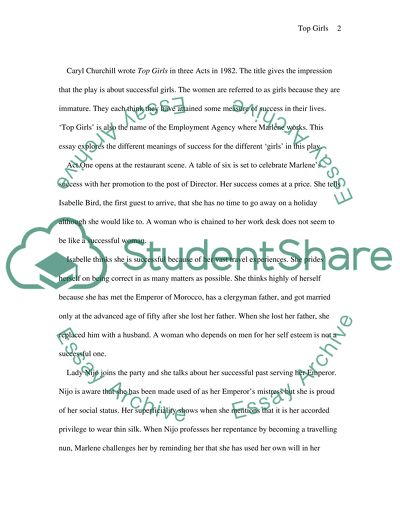Cite this document
(“Caryl Churchills Top Girls Book Report/Review Example | Topics and Well Written Essays - 1500 words”, n.d.)
Retrieved from https://studentshare.org/literature/1508436-caryl-churchills-top-girls
Retrieved from https://studentshare.org/literature/1508436-caryl-churchills-top-girls
(Caryl Churchills Top Girls Book Report/Review Example | Topics and Well Written Essays - 1500 Words)
https://studentshare.org/literature/1508436-caryl-churchills-top-girls.
https://studentshare.org/literature/1508436-caryl-churchills-top-girls.
“Caryl Churchills Top Girls Book Report/Review Example | Topics and Well Written Essays - 1500 Words”, n.d. https://studentshare.org/literature/1508436-caryl-churchills-top-girls.


